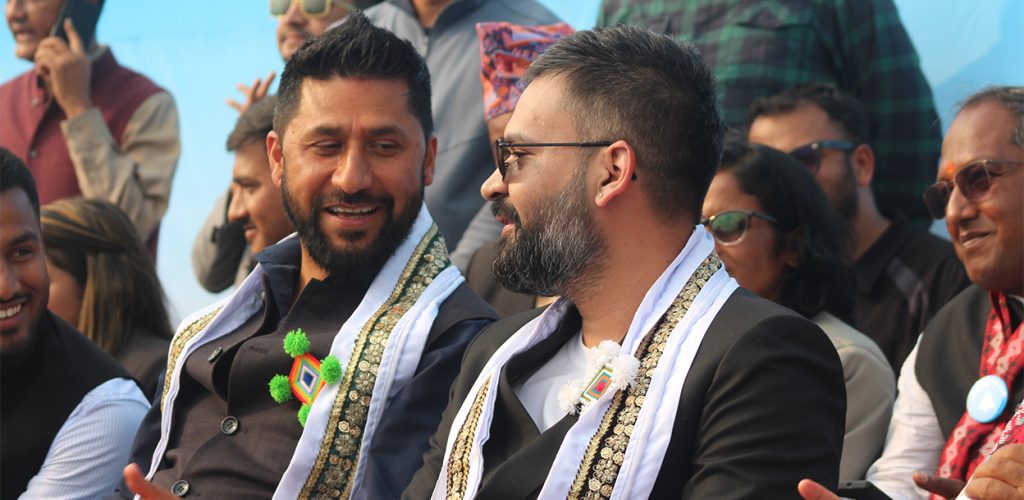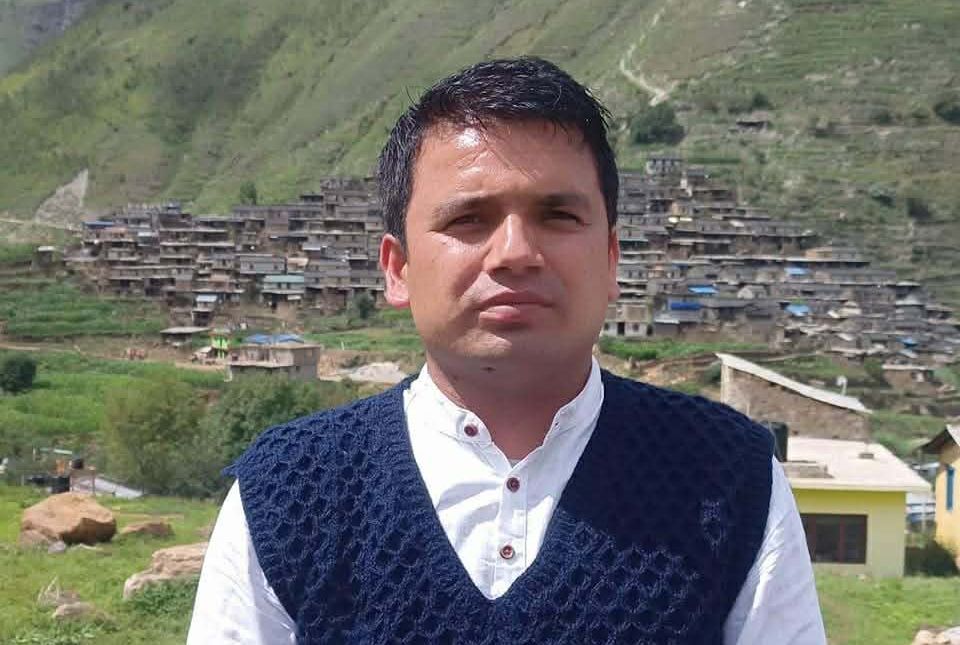
In 2017, singer Muskan Ranabhat enrolled at Ratna Rajya Laxmi Campus, Tribhuvan University, to pursue her Bachelor’s degree in music. She expected to study various areas of music, including music technology, music production, different instruments, and elements of Western music. However, her expectations were not met. She was compelled to focus solely on Eastern music, specialising only in vocals, as the university’s curriculum was limited to that.
“Music education was not as fruitful as I hoped,” says Ranabhat. “I wanted to learn the diverse side of music, but the course did not allow me to do so.”
The formal education of music in Nepal was started after the establishment of Padma Kanya High School, which was formally opened in Kathmandu in 1947 AD. However, the development of formal music education appears to have progressed slowly after that initial step. The launch of music education at Padma Kanya High School marked the beginning of a structured academic program in music in Nepal. Later, the establishment of Nepal Sangeet Maha Vidyalaya in 1957 under the auspices of the Nepal Sangeet Parishad became another pioneering step, serving as the first dedicated music college in the country.
Currently, Tribhuvan University and Kathmandu University provide formal education on music in Nepal. Kathmandu University started conducting undergraduate and postgraduate courses in ethnomusicology in 1996.
While music as a career is still a topic of discussion in Nepal, its education, teaching pedagogy, and curriculum are also a matter of growing concern among students, educators, and working musicians.
Universities in Nepal are often criticized for internal politics, outdated teaching pedagogy, delays in examinations and results, and obsolete curricula—regardless of the faculty, whether it be engineering, medical science, management, social sciences, or music, as music education is no exception.
Curriculum lacks direction

According to Shishir Uprety, Principal at Nepal Sangeet Vidhyalaya, it is already late to revise the music curriculum. AI has already begun making a strong impact on the music industry, yet the existing course does not address this development.
“University-level education is focused mainly on Eastern music, but the current generation is not interested in learning traditional music,” says Uprety. “They are heavily influenced by Western music. Many students are going abroad to study music because they can’t find advanced courses in the country.”
However, Uprety does not imply that classical or Eastern music is unimportant. Instead, he emphasizes the need to make these forms relevant through fusion.
“We should promote Eastern music, but our courses also need to be relevant to the times,” he adds. The course should address the needs of students whether they want to learn western music, music technology and among others.”
Musician Rajan Shrestha, also known as Phatcowlee, highlights the lack of academic discourse on music.
Like Uprety, Shrestha also sees the need to update the curriculum and believes it should have a clearly defined objective. He also points out that music students should be introduced to new literature and courses that teach critical thinking.
“The curriculum lacks clarity on whether it aims to produce performing artists, researchers, or educators,” says Shrestha, who holds a master’s degree in ethnomusicology from Kathmandu University.
Echoing Shrestha, Krishna Kumar Kharel, Assistant Campus Chief and Head of the Music Department at Lalit Kala Campus, also emphasizes that unless the curriculum clearly defines whether its goal is to produce musicians, academicians, or researchers, the development of music education will remain stagnant.
Professional gaps persist

According to Kharel, another major problem with music education is that it does not teach students about professional aspects such as music management, commercializing music, and creating value for one’s work.
“Music is not merely about singing; students should learn these things too,” says Kharel.
Musician and Associate Professor at Kathmandu University’s Department of Music, Lochan Rijal, appears fairly satisfied with the overall direction of the course. He says the music education provided by KU has a broader scope, as it not only develops students’ performance skills but also encourages them to view music as a cultural phenomenon.
“The course we offer is action-oriented,” says Rijal. “It complements both performance and research in parallel.”
However, Rijal also acknowledges certain gaps in the curriculum.
“The course is not sufficient enough to hone students in research and development,” he says. “It also does not do enough to promote our music or to standardize local musical instruments.”
Besides the curriculum, another challenge of music education, according to Uprety, is that all academic institutions offering music education are centered in Kathmandu, which deprives those from outside the Kathmandu Valley of access to such education.
Policy-level apathy

Uprety also laments the attitude of university authorities and the government toward music education and music as an art form.
“The government and university authorities have always failed to take music seriously,” says Uprety.
Shrestha and Kharel share similar views.
“Those in positions of authority have yet to realize that music is not merely a form of entertainment — it also plays a crucial role in promoting and preserving both tangible and intangible heritage,” says Shrestha.
Kharel adds that university authorities are still not serious about music education and continue to deprioritize the faculty.
According to the Journal of Fine Arts Campus (2025), published by Tribhuvan University, funding for music education at Nepali universities has consistently relied on government support, leading to persistent challenges due to budgetary constraints. Current music colleges and universities have struggled to develop effective curricula, manage examinations, and engage in meaningful research.
“Formal music education, an integral part of our national cultural heritage, is currently facing significant challenges due to inadequate human and financial resources allocated for research and study — despite having sufficient physical infrastructure,” the journal states. “Organizations responsible for music education seem to lack enthusiasm and motivation in effectively planning, managing, executing, and evaluating the resources at their disposal.”
Similarly, Kharel of Lalit Kala Campus believes that reform must begin at the policy level. He stresses that music education should be introduced from the school level.
“When students begin learning music only at the bachelor’s level, they miss the opportunity to build a strong foundation in the basics,” he says.
He also criticizes a new provision that allows students without a bachelor’s degree in music to enroll directly in a master’s program — something that was not permitted in the past.
“Someone without a bachelor’s degree in music may struggle with the coursework at the master’s level, ultimately harming their academic career,” Kharel warns.
To support the advancement of music education, the Journal of Fine Arts Campus further recommends: “A sufficient budget must be allocated to enhance the promotion of music education throughout Nepal. Additionally, regular training sessions, orientations, and various motivational and development programs for educators should be implemented to continuously improve teaching quality and staff engagement.”
Without adequate resources, policies, and passion, music education in Nepal risks becoming a relic rather than a renaissance. The question remains: will our institutions rise to the occasion — or let the song fade out?




















